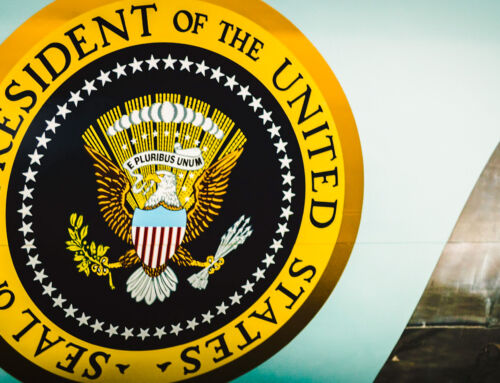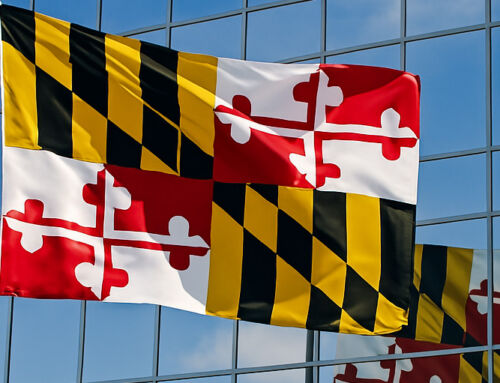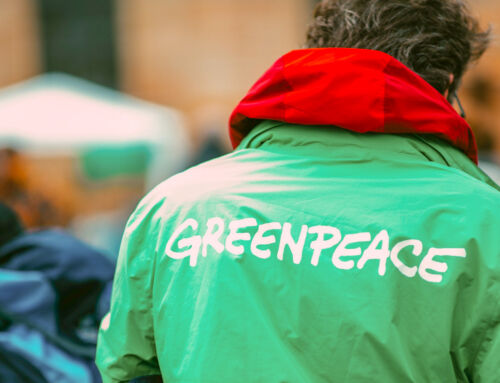View by Topic
Recent Articles
-
Migratory Bird Treaty Act Does Not Prohibit Incidental Take – AgainSaturday, April 19th, 2025
-
President Trump’s Bold Step to Rein in State Overreach in Climate ChangeSaturday, April 12th, 2025
-
Mandatory GHG Disclosures in Maryland Real Estate ContractsSaturday, April 5th, 2025
-
NYC Building Electrification Ruling is Interesting But Not a Game ChangerSaturday, March 29th, 2025
-
Greenpeace Ordered to Pay $667M in Blow to ActivismSaturday, March 22nd, 2025
View by Month/Year
“Green Building Law Update” Headlines
Recent Articles & News from
Stuart Kaplow’s blog
at GreenBuildingLawUpdate.com
- President Trump’s Bold Step to Rein in State Overreach in Climate Change April 13, 2025
- Mandatory GHG Disclosures in Maryland Real Estate Contracts April 6, 2025
- NYC Building Electrification Ruling is Interesting But Not a Game Changer March 30, 2025
- Greenpeace Ordered to Pay $667M in Legal Blow to Environmental Activism March 23, 2025
Subscribe to the Green Building Law Update!
Stuart Kaplow brings his expertise and extensive experience to the table with his unique digital publication, "Green Building Law Update". Subscribers receive regular updates to keep them informed about important issues surrounding Environmental Law, Green Building & Real Estate Law, as well as the emerging demand for Environmental Social Governance (ESG).
Get fresh content through the lense of Stuart Kaplow's cutting-edge expertise, innovative commentary and insider perspective. Don't miss another issue! Subscribe below.

Maryland to Commit to World Economic Forum’s One Trillion Trees Initiative Tree Planting
The Maryland legislature has enacted and the Governor is expected to sign legislation that will take effect on June 1, 2021 establishing aggressive state tree planting goals and a host of other initiatives rooted in trees, all in an effort to respond to climate change.
While other significant climate change legislation failed to pass in the just completed session, the Maryland Senate passed this House bill unanimously, finding that that “the restoration of trees remains among the most effective strategies for climate change mitigation.”
House Bill 991 is large and complex when it does many things to cause more trees to be planted.
The bill will create business opportunities for savvy players in the environmental industrial complex, not only when it creates mandated government appropriations through 2031 that will have a net effect of $15 Million a year, but dramatically creating private sector opportunities in forest mitigation banking.
The planting of trees, as has long been required by Maryland law whenever 40,000 square feet is disturbed, was dealt a devastation blow when the Maryland Attorney General recently issued an opinion that the placement of a protective easement on an already existing forest, as opposed to intentionally created or restored forest, does not qualify for “forest mitigation banking.” Significantly, this bill responds modifying the definition of forest mitigation banking to be the intentional restoration, creation, or qualified conservation of forests undertaken expressly for the purpose of providing credits for afforestation or reforestation requirements with enhanced environmental benefits from future activities. “Qualified conservation” is defined as the conservation of all or a part of an existing forest that was approved on or before December 31, 2020, by the appropriate State or local forest conservation program for the purpose of establishing a forest mitigation bank and is encumbered in perpetuity by a restrictive easement, covenant, or another similar mechanism recorded in the county land records to conserve its character as a forest.
As such, the bill retroactively allows forest conservation that was completed in a then qualified forest mitigation bank on or before December 31, 2020, to be used, under both State and local forest conservation programs. However, in the future the bill limits the afforestation or reforestation credit that may be granted for the use of qualified conservation to no more that 50% of the forest area encumbered in perpetuity.
The bill, that may be the single most significant enactment of the session, also establishes a new policy of the State to support and encourage public and private tree planting, with the goal of planting and helping to maintain 5,000,000 sustainable native trees in Maryland by the end of 2031.
The bill provides that it is the intent of the General Assembly that at least 500,000 of those trees be planted in underserved areas. The Governor must formally pledge the State’s commitment to achieving the bill’s tree planting goals through the World Economic Forum’s One Trillion Trees Initiative.
To help achieve these goals, the bill significantly alters the priorities of the state towards tree planting and directs additional resources to a number of existing environmental programs and initiatives, including by way of example, in fiscal 2023, $2.5 million must be transferred from the Wastewater Account of the Bay Restoration Fund to the Chesapeake and Atlantic Coastal Bays 2010 Trust Fund for tree plantings on public and private land, and for fiscal 2024 through 2031, the Governor must include an annual appropriation of $2.5 million in the State budget for tree plantings on public and private land. The bill also establishes a $10 million annual Urban Trees Program, administered by the Chesapeake Bay Trust, for the purpose of making grants to qualified organizations for native tree-planting projects in underserved urban areas. Additionally, the bill establishes a Commission for the Innovation and Advancement of Carbon Markets and Sustainable Tree Plantings charged with developing a plan to achieve the State’s carbon mitigation goals.
People have understood the importance of trees since before the Old Testament admonition, when waging a war against a city “.. you must not destroy its trees,” (Deuteronomy 20:19) which has been interpreted far more broadly than only protecting fruit trees, but to stand for the proposition of not destroying God’s creations.
Today the science tells us there is an opportunity for climate change mitigation through tree planting. In a model for other places, Maryland is repairing the world with planting trees.









